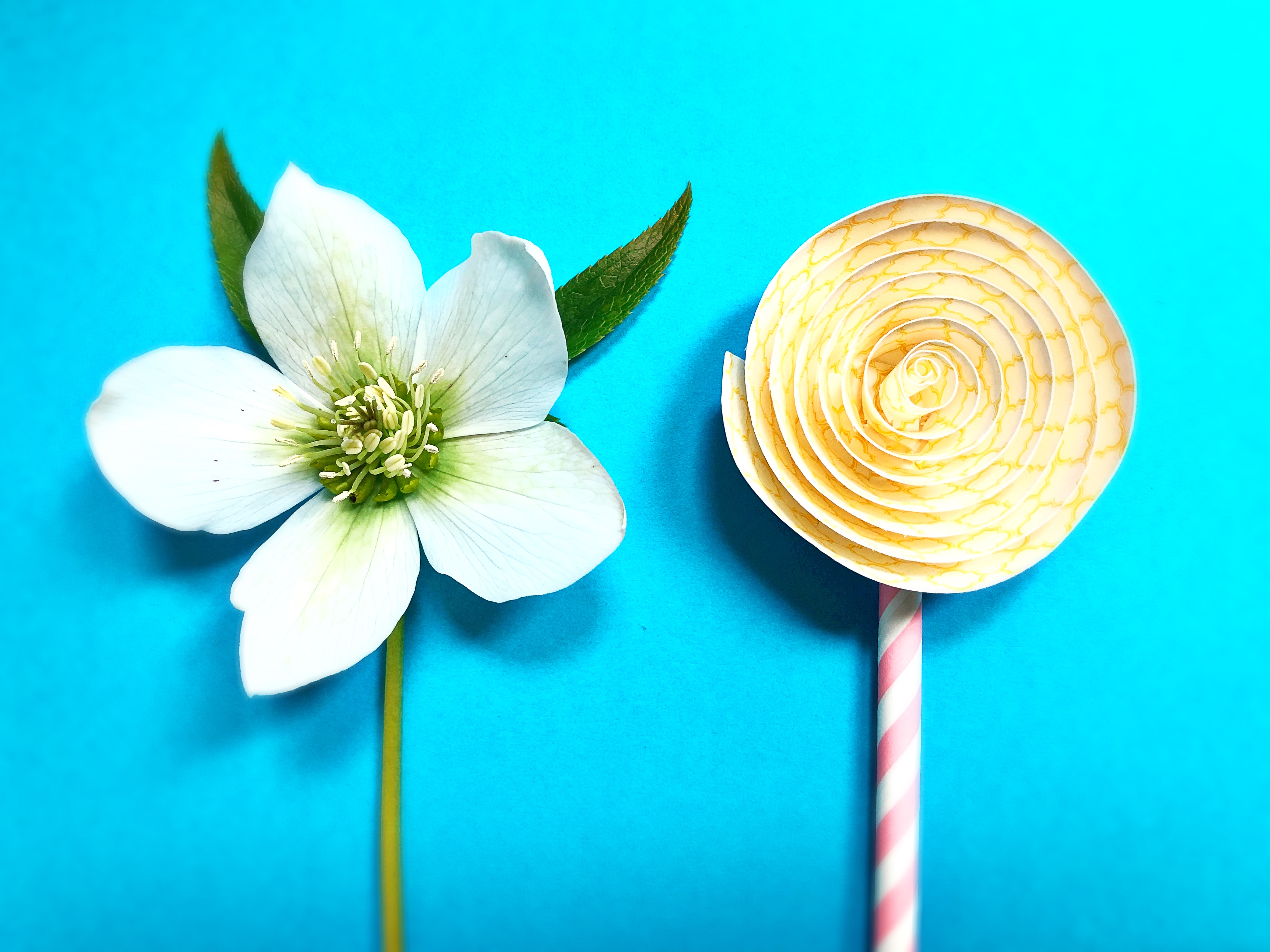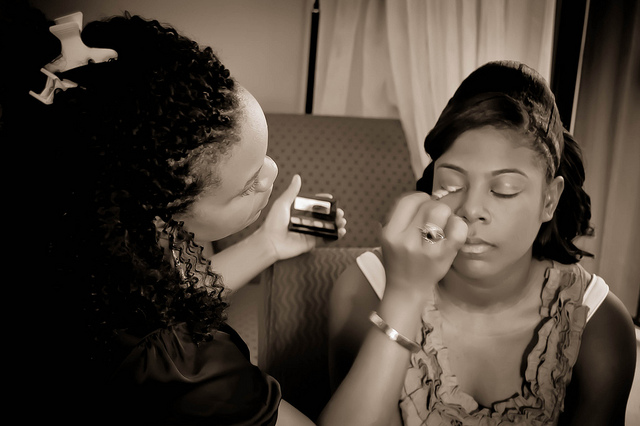
By Susan Rebecca White
From the moment we met, Katharine dazzled me.
I was the first to arrive at the slightly dilapidated, university-owned house I had been assigned to live in with other random transfer students. Rattling around its many rooms, I worried that my new home was too dark, too drafty, and entirely too big, especially since it contained almost no furniture, and all I had brought with me from Atlanta were clothes, books, and a computer. I watched as a rental truck pulled up in front. An arresting, raven-haired woman in skinny jeans and a tee-shirt jumped out and bounded to the door, greeting me with unabashed enthusiasm and delight, introducing herself as Katherine from Princeton, New Jersey, by way of Manhattan. Darting from room to room, she pulled me along, exclaiming over the house’s fabulous features—its hardwood floors, high ceilings, and many windows, seeing all the things that I couldn’t.
Dragging in old furniture given to her by her parents, Katharine filled the drab space with color: a white sofa here, a blue checked armchair there, an antique dining table and rugs. Plus, lamps! Light! That first night we sat up late, beneath cozy throws, talking. I listened to Katharine with rapt attention. Talking to her was like conversing with a more confident, glamourous, Jewish version of myself. We forged a fast friendship through stories of our lives, which included a number of parallels, from the mundane—we both loved hot popcorn with M&Ms mixed in—to the more profound, including an odd coincidence: At our previous colleges, we had each pledged the very sorority our mothers had been excluded from decades before, though the experience of Katharine’s mom was admittedly more harrowing, as mine pledged elsewhere, whereas Katharine’s was cut from all of the ones she was interested in, later learning that none (at that time) accepted Jewish girls.
Having vindicated her mother’s past rejection, Katharine, who never much liked pledge meetings, dropped out soon after and never looked back. I chafed at being a part of the Greek system, but went through initiation anyway, not knowing how to leave a system that was so important to the WASPy Southern world I had grown up in. But now I was in a different world, a better world—Katharine’s!—and I could adopt her ways as my own, or at least try.
That first week of school, I dutifully attended all of the new student orientation activities. Katharine stayed behind. I fretted that she was missing out on Very Important Transfer Information and Meeting New People. Little did I know, she didn’t need these events to find her tribe. A skilled actor, by the end of our first week, she had already been cast as the lead in the mainstage play. From then on, walking through campus with Katharine could take what felt like hours as theater friends stopped to gush over her while I stood by and waited, silent, smiling stupidly. I was so young, so naïve, so needy, that I honestly didn’t know that it was okay to take off, calling, “Gotta go!”
Or maybe I did know I could leave, but I didn’t want to because that would mean losing time with Katharine.
When Katharine speaks of our time living together—we were housemates all three years at Brown—she describes me as domestic, easy, laidback. I must have come across as more laidback than I felt. In fact, I often felt just the opposite, getting my feelings hurt over the smallest things, especially that first year. Once, I bought two-percent milk, which I preferred, over our standard skim. Watching a look of disgust cross her face as she took a sip, I felt wounded, as if her not liking two-percent milk meant she didn’t like me. Later, I tearfully confessed that I was upset. She laughed, affectionately, assuring me of her love. We chalked it up to the North-South divide.
As a Southerner at a very Northern school, I often misread things (or simply mispronounced them). But once Katharine was a part of my life, I emulated her, grateful for her guidance and sophistication. I no longer called espresso “ex-press-o,” thinking it was thus named because it made you speedy. I now went to see “films,” not “movies,” and referred to the person who directed them instead of calling them by their title.
•••
To this day, I can still feel a rush of exhilaration thinking of the many nights Katharine and I stayed up too late talking, laughing till tears ran down our cheeks, clutching our stomachs, giddy from our shared sense of humor, our mutual delight. I had never before had a friend who was such a cheerleader, who took genuine pleasure in my success. That said, I didn’t always feel successful in the wider world of Brown, and at times I wished some of Katharine’s talent and charisma would rub off on me.
At Brown, you had to apply to take any advanced creative writing classes. Every semester I applied and was rejected while Katharine was cast in play after play. And guys never randomly sent me roses or composed entire songbooks about me.
Domestic even then, I was forever baking apple crisps, eager to pair them with ice cream and curl up on the couch to talk or play a board game or watch a movie. But Katharine often had other things to do—rehearsal or dinner with friends I found intimidating. I would get so excited whenever the two of us made plans to do something just with one another.
Which made the occasional times when she stood me up for a coffee date or lunch all the more painful. This was before cell phones, when there was no easy way to convey a message at the last minute that you couldn’t make it. The worst part was the shame I felt, as if everyone in the entire coffee house knew I had been rejected.
As the end of our time at Brown neared, I got clingier, and Katharine, in turn, became increasingly casual with commitments. A few weeks before graduation, she arrived egregiously late for a cooking lesson she’d asked me to give her. Eager to finally be the expert at something, I had purchased all of the ingredients and then waited in our apartment. And waited. When she finally arrived hours late, unaware that anything was the matter, I was overcome with fury. My outburst, I imagine, was not unlike a wife confronting a husband over a discovered affair, a “J’accuse!” to match any bedroom drama.
I remember sensing her frustration despite her apology—resentful that I was too needy, that my grip was too tight.
That night, she went to a party and got very drunk, which was completely out of character. She came home, sick from alcohol, and wept on the couch as I comforted her, all the while bitter that I could be counted on for comfort, always.
•••
Looking back, it’s obvious that I was too needy, my outsized reactions surely rooted in the fear that she didn’t care enough about me to hold on tight, to prevent me from being sucked back into the vortex of the image-conscious, Southern, Protestant world in which I had grown up, where I felt frequently condescended to, deemed a navel-gazing, overthinker whose progressive politics were either cute, hilarious, or annoying, depending on who you asked. As if the intimate, encouraging, conversation-driven world Katharine and I had created and cultivated in college was just a dream, and when I woke up, I would return, once again, to my old, misfit self—the magic of Katharine and all she represented gone.
•••
I moved back to Atlanta after graduation. A year later, I moved to the Bay Area, where I taught English at a boarding school and waited tables, and finally went to graduate school in creative writing, but not before marrying a man who was ill-suited for me.
Katharine and I stayed connected throughout, our friendship growing robust and healthy after it was allowed a little breathing room. We called, we wrote, we emailed, we texted, we visited, we were bridesmaids in one another’s weddings. It was during her wedding weekend that I first recognized that the power dynamic in our relationship had shifted, that she was no longer a god to me, but someone with whom I was on more equal footing. At the rehearsal dinner, I gave a toast, a tongue-and-cheek list of all the things I had learned from our long friendship, including that when dining out with Katharine, you must always insist that you really, really loved whatever you were served because if you expressed the merest hint of dissatisfaction, she would flag down a waiter and send your food back. That line got a big laugh, as many of the other guests had surely had their food sent back at one time or another by Katharine, who was beaming, confident enough to laugh at my ribbing, delighted to be so known.
A few years later, for the first time since college, Katharine and I were once again living in the same city, this time New York. I was only there for a few months—I’d taken a summer sublet that would allow me to do some on-the-ground research for the novel I was writing, a chunk of which was set in Manhattan. The plan was for my (then) husband to go with me, but a few weeks before we were scheduled to leave, our marriage—always unstable—collapsed, and so I went on my own.
Katharine’s apartment was just eight blocks east of mine, by Carl Schurz Park, where we would meet several times a week to push her toddler on the swings, all the while talking, talking, talking. We were in such different places—my domestic life fracturing, hers expanding with children, yet our need for one another was mutual. Pregnant with her second, she was the only one of her New York friends to stay at home, and the days could get lonely. But I loved hanging out with her and her son, hearing his squeals of delight on the swing, witnessing the grin that slowly spread across his face the first time he tasted ice cream. As for me, life was a mixed bag: Somedays I showed up at the park (or Shake Shack or the Onassis Reservoir path) floating with happiness that I had been brave enough to leave my mess of a marriage. Other days I was flattened by fear: Would I be okay financially? Would I complete my novel without the guidance of my writer husband? Would I find love again? Katharine, ever the optimist, assured me that yes! I would patch together enough teaching gigs to support myself. Yes! I would write a wonderful novel on my own. And, yes! Now that I had left my husband, I was closer than ever to meeting a true mate with whom to have a child. “You know yourself so much better now,” she told me. “You know what to look for in a man.”
Two years later she would fly down to Atlanta where I was living with my new husband, to hold our infant son, help out with the laundry, and just be there.
•••
Though I wish I had possessed a deeper sense of self during those first few years of our relationship and hadn’t been so needy (and she, on occasion, so flaky), I treasure the lessons my friendship with Katharine has taught me: That you don’t necessarily have to jettison a relationship in order to change your role within it; that those you love will hurt you, and you them, and it doesn’t erase the love; that forgiving one another for our human shortcomings can actually strengthen a bond. Despite our initial ups and downs—or, more accurately, because of them—I trust the durability of our bond. I know that it is neither delicate nor fragile.
•••
I’ve asked other women if they had a college friend they adored and possibly even worshipped. Almost everyone answered yes. It occurs to me that so many of us find friends to emulate in college because it’s the time when we most believe we can stride into the world anew, loosened from the binds of family and society. It’s an illusion, of course. My friendship with Katharine was never going to allow me to circumvent dealing with the broken parts of myself—my insecurities, my blind spots, my wounds. But through Katharine, I saw that a different sort of world was possible—a world of unfettered enthusiasm, with friendship and art at its center. And I loved her for that; I loved her so much that I made the mistake of trying to tie myself to her, as if we could spend our entire lives inside our apartment, eating apple crisps and laughing. But she had her life to live, as I had mine. The miracle of my forties is this: I am content with who I have become. I got to this place in no small part through the gift of my ongoing friendship with Katharine. She offered me both a mirror and a window: reflecting back a vision of myself that I could not see and opening a window into a bigger, brighter world.
•••
SUSAN REBECCA WHITE is the author of four novels, including A Place at the Table and We Are All Good People Here. Her nonfiction has been published in Tin House, Los Angeles Review of Books, The Bitter Southerner, Full Grown People, and other periodicals. She lives in Atlanta with her husband and son. For more, visit her website at susanrebeccawhite.com and/or follow her on Instagram @susanrebeccawhite

 Follow
Follow





